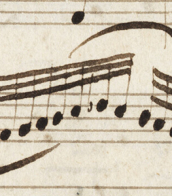Leoš Janáček (1854 - 1928) — Auction price

Leoš Janáček, birth name Leo Eugen Janáček, was a Czech composer and musicologist, folklorist, publicist and teacher.
Janáček was a singer in Brno, and studied at the Prague, Leipzig and Vienna Conservatories. In 1881 he founded the Collegium of Organists in Brno, which he directed until 1920. From 1881 to 1888 he directed the Czech Philharmonic Orchestra, and in 1919 he became professor of composition at the Prague Conservatory.
Janáček was deeply in love with national music, collecting folklore and publishing the journal Musical Pages. He was inspired by Moravian and other Slavic music, including Eastern European folk music, to create an original modern musical style.
In his early period of creativity, Janáček was strongly influenced by the musical style and aesthetics of his friend Dvořák. His first opera, Šarka (1887-88), was a romantic work in the spirit of Wagner and Smetana. In his later operas he developed his own distinctly Czech style, built on the intonations of his native speech and folk melodies. Janáček's most important operas are Jenůfa (1904) and Her Foster Daughter, which established the composer's international reputation; The Case of Macro Pulos (1926), From the Dead House (1930), and others. Most of Janáček's operas have been staged in Czech.
Janáček visited Russia three times, and his interest in Russian language and literature resulted in the opera Katya Kabanova (1921) and the orchestral rhapsody Taras Bulba (1918). Janáček also wrote a number of instrumental chamber works. The world-famous composer spent most of his life in Brno, where the vast majority of his works were performed for the first time. Today, Janáček is the most frequently performed Czech opera composer in the world.


